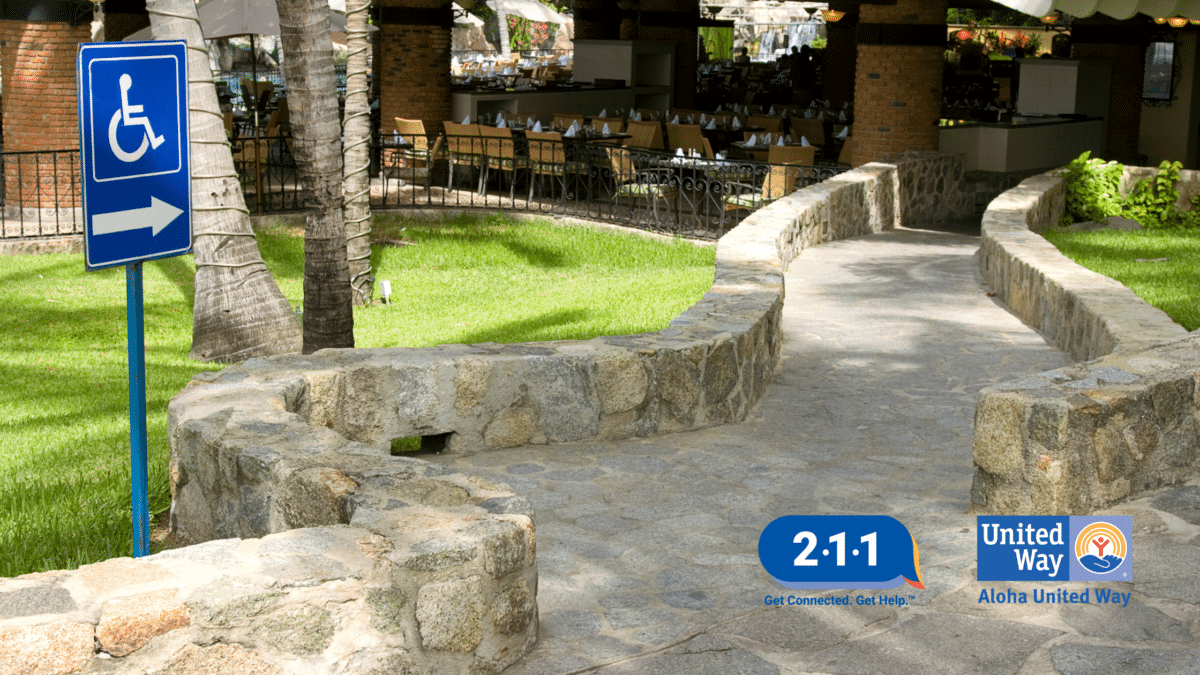Trouble Ahead

AUW’s 211 Statewide Resource Helpline can be a great resource for those living with disabilities. From physical therapy to financial assistance, a number of programs exist to help support healthy and happy living for disabled individuals and their families. The Americans with Disabilities Act (ADA) protects people with disabilities from discrimination. Disability rights are civil rights. Recently, a caller dialed 211 with an ADA question that turned out to be a little more complicated than expected.
The caller explained that he was unable to access a restaurant that he really likes and was also concerned about the conditions near the space. After asking a few questions, the 211 Resource Specialist was able to connect the caller with a program to address the accessibility issue. However, the second concern, the unsanitary conditions, left the Specialist stumped. The caller explained that while trying to access the business, he had to make extensive detours around. . .well, piles left by dogs. These “obstacles” were extensive enough to cause the caller much distress.
After an extensive search, we were unable to address the issue. Sometimes, we can’t find an answer. That is how unmet needs are created and help shape community resources. 211 plays a critical role in identifying resource gaps. When the Specialist couldn’t find any resources for the complaint, it was logged. As an unmet need, it will be used to provide important information about resources and the location of resources. Sometimes, help exists, but not in the zip code that the caller needs. That situation can be described as a resource desert. Identifying a lack of food pantries in an area can impact hundreds if not thousands of local residents. These deserts are identified and provide existing organizations and governments with information needed to address the need.
The caller will be visiting his favorite deli safely in the future and we hope the other piles blocking his way will be moved very soon. If you need help, don’t hesitate to call 2-1-1, 808-ASK-2000 or visit auw211.org. The service is free, confidential and available statewide.
